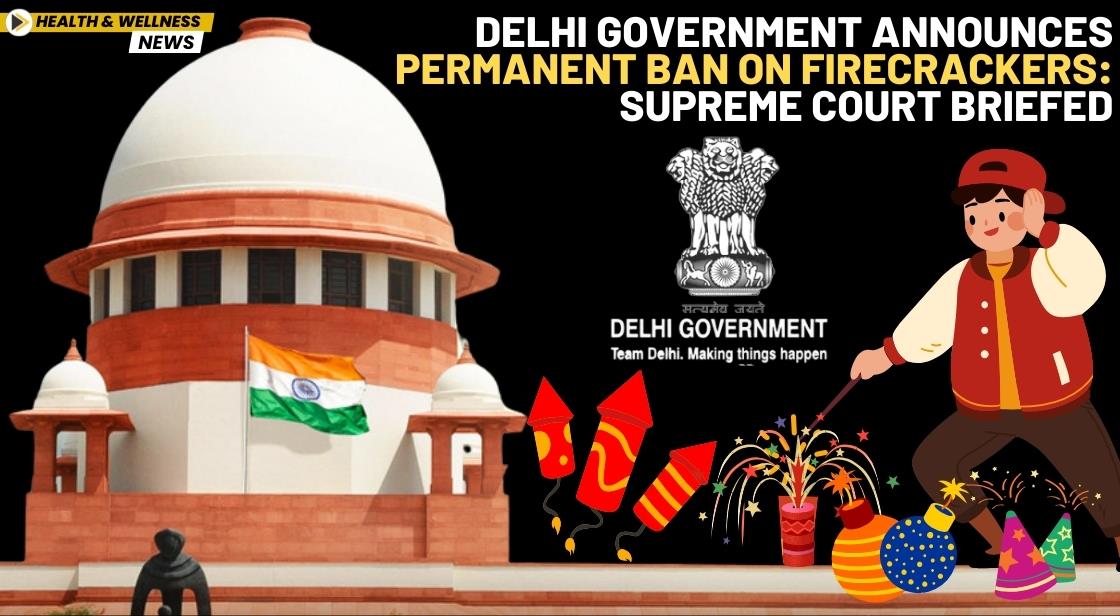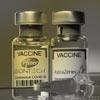Delhi Government Announces Permanent Ban on Firecrackers: Supreme Court Briefed

Podcast
News Synopsis
In a decisive step to tackle the growing problem of air pollution, the Delhi government has announced a permanent ban on all types of firecrackers in the national capital. The ban, effective January 1, 2025, applies to the sale, storage, and bursting of firecrackers throughout the year.
The announcement was made on Thursday, accompanied by a government order citing the rising levels of air pollution in Delhi, particularly during the festive season.
Key Details of Ban on Firecrackers
The permanent ban on firecrackers is enforced under Section 5 of the Environment (Protection) Act, 1986, with strict instructions prohibiting their manufacturing, storage, sale, and use across the National Capital Territory (NCT) of Delhi.
During a hearing, the Delhi government informed the Supreme Court about the latest measures, underscoring the severity of Delhi’s air pollution crisis. The government highlighted that air quality in the city worsens dramatically during the winter months due to increased pollutant levels, including PM 2.5 and PM 10, which often exceed prescribed standards.
The entire Union Territory of Delhi has already been designated an Air Pollution Control Area under Sub-section (1) of Section 19 of the Air (Prevention and Control of Pollution) Act, 1981, as per the government’s official statement.
Reasons Behind the Permanent Firecrackers Ban
The Delhi government cited the following reasons for its decision:
Alarming Air Pollution Levels:
Delhi experiences severe air pollution during winter, exacerbated by the bursting of firecrackers during festivals.
Environmental and Health Concerns:
The harmful effects of firecracker pollution include increased levels of particulate matter (PM 2.5 and PM 10), which pose significant health risks.
Past Trends:
Historical data shows a noticeable decline in air quality during the festive months of October to January, necessitating stringent measures.
Regulatory Framework:
The prohibition has been in place since 2020 under the Air (Prevention and Control of Pollution) Act, 1981, and has now been extended to include online platforms involved in the sale of firecrackers.
Delhi’s Comprehensive Approach to Pollution Control
The permanent ban is part of a broader strategy to combat air pollution in the city. The government has implemented various measures, including:
-
Awareness Campaigns: Educating the public about the environmental impact of firecrackers.
-
Alternative Celebrations: Encouraging eco-friendly celebrations during festivals.
-
Stringent Monitoring: Intensifying checks on the illegal sale and use of firecrackers.
Implications of the Permanent Firecrackers Ban
1. Positive Impact on Air Quality
The permanent ban on firecrackers is expected to bring a significant reduction in pollutant levels, particularly during the festive seasons when air quality typically deteriorates to hazardous levels. Firecrackers are a major contributor to short-term spikes in PM 2.5 and PM 10 levels, which are linked to severe health problems. By eliminating the use of firecrackers, the Delhi government aims to curb these spikes, leading to cleaner, breathable air for residents.
Additionally, the move aligns with broader environmental goals such as combating climate change and adhering to national and international commitments on pollution control. Improved air quality will also positively impact Delhi’s visibility, urban flora, and overall ecological balance, contributing to a more sustainable environment.
2. Legal Enforcement
To ensure compliance with the ban, the Delhi government has put in place a robust enforcement mechanism, including strict penalties for violators. These measures may include:
-
Fines for individuals and businesses found manufacturing, storing, selling, or using firecrackers.
-
Seizure of illegal stockpiles of firecrackers during random inspections.
-
Online monitoring to crack down on the distribution of firecrackers through e-commerce platforms.
The government has also emphasized the role of law enforcement agencies and local authorities in closely monitoring neighborhoods, marketplaces, and online activities. This approach aims to deter violators, making the ban more effective in addressing air pollution.
3. Health Benefits
The health benefits of this decision are expected to be far-reaching, particularly for vulnerable groups such as children, the elderly, and those with pre-existing respiratory conditions. Firecrackers release toxic gases and fine particulate matter that can exacerbate conditions like asthma, bronchitis, and cardiovascular diseases.
By banning firecrackers, the government anticipates a reduction in pollution-related hospital admissions and long-term health complications. Cleaner air will also lead to improved overall quality of life for Delhi’s residents, reducing healthcare costs and increasing productivity by minimizing pollution-related illnesses.
Furthermore, the move will contribute to a healthier urban environment, creating a ripple effect of benefits for both human and environmental well-being. Cleaner air could also enhance Delhi’s appeal as a livable city, encouraging tourism and investments.
Together, these implications underline the significance of the Delhi government’s decision to impose a permanent ban on firecrackers, presenting a strong case for similar measures in other pollution-prone regions.
Conclusion
Delhi’s permanent ban on firecrackers reflects its commitment to addressing the pressing issue of air pollution. With this decisive move, the government aims to protect public health, reduce environmental degradation, and set a precedent for other cities grappling with similar challenges. While the measure may face resistance, it underscores the urgent need for collective responsibility in safeguarding the capital’s future.





